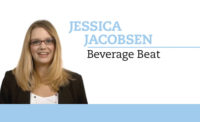Cover Feature
Beverage industry embraces more diverse, equitable workforce
Amplifying awareness, driving diversity

Illustration courtesy of Dana Knapp
The U.S. population continues to evolve. In the 2020 Census analysis for the U.S. Census Bureau, it is reported that the Black or African American in combination population grew by 88.7% since 2010 while the American Indian and Alaska Native population increased by 160% from 2010 to 2020. Meanwhile, the percentage of people who reported multiple races changed more than all of the race alone groups, increasing from 2.9% of the population (9 million people) in 2010 to 10.2% of the population (33.8 million people) in 2020, the U.S. Census Bureau states. The White population remained the largest race or ethnicity group, with 204.3 million people identifying as White alone. Given these shifting demographics as well as greater awareness of the importance of opportunities available to people of color, beverage companies during the past few years have dramatically stepped up their efforts to literally “change the face” and strive for more diversity, equity and inclusion (DEI) in the workplace.
Among the ways the beverage industry is bringing these important issues to the forefront is by creating diversity initiatives and foundations aimed at introducing people from underrepresented communities to the alcohol and non-alcohol sectors. It also is investing in Black-owned businesses like La Fête du Rosé wine founded by Donae Burston. La Fête du Rosé was the first brand invested in as part of Constellation Brands’ Focus on Minority Founders initiative, which plans to invest $100 million in Black, Latinx and minority-owned businesses by 2030.

Image courtesy of The Coca-Cola Co.
Hiring passionate chief diversity, equity and inclusion officers like Lori George Billingsley of The Coca-Cola Co., Atlanta, and Dr. J. Nikol Jackson-Beckham at the Washington, D.C.-based Brewers Association (BA) also is expected to enhance awareness, accessibility, conversation and change within the ranks of the multifaceted beverage industry.
Noting that beer is for everyone, Jackson-Beckman, who was brought in as a consultant at the BA in 2018 before being hired full-time as the association’s first-time Equity and Inclusion partner in 2020, points out that although beer historically has been one of the most widely consumed beverages per capita and the vast majority of Americans of drinking age, upwards of 85%, live within 10 miles of a craft brewer, not everyone is equally represented.
“It’s the engine of social interaction that provides widely accessible avenues for innovation and opportunity. But not everyone is here,” she says. “At the Brewers Association, cultivating diversity isn’t just a feel-good effort, it’s critically needed. While the craft brewing industry is built on the spirit of community and collaboration, we have work to do to bring awareness and eradicate systemic racism that permeates society as a whole, including the brewing community.”
As a result, the BA has created programs designed to cultivate conversation and action around diversity and inclusivity in craft beer and has made the commitment to helping the craft brewing community improve their business practices and businesses as a whole. Actionable insights are occurring through a diversity committee, ramped up professional development and mentorship programs to provide best practice resources.

Image courtesy of the Brewers Association
“The BA is committed to setting up brewers and beer lovers for success and ensuring we're learning, sharing, and making connections between us,” Jackson-Beckham says.
Jackson-Beckham also is the principal of Crafted For All LLC, a consultancy and professional development platform that helps craft beer organizations become more inclusive, equitable and just through engaging storytelling to deliver custom consulting solutions, transformative learning experiences, and constructive community engagements.
At The Coca-Cola Co. for 19 years, Billingsley’s passion for diversity and inclusion dates back to her childhood in Teaneck, N.J., where her schoolteacher mother and minister father instilled in her a belief in the democracy of voices, ideas and perspectives.
“My parents taught me that the way to solve problems was to bring everyone around our kitchen table and hear them out,” Billingsley recalled in a Q&A on the company’s website. “We get the best results when everyone has a seat at the table. When we listen, we learn and we decide together it's important to value all perspectives, and that's why I'm excited to be in this role at a company that believes in the power of being diverse and creating an inclusive culture.”
An ordained minister, Billingsley leads the company’s Global Diversity, Equity and Inclusion Office, all directed to enable a more engaged global workforce, mirror the markets served, and support a more inclusive culture to best position the employees of the company to drive growth. . Prior to taking the role in October 2018, she served as vice president of community and stakeholder relations for Coca-Cola North America, leading community giving and engagement, stakeholder relations, employee volunteerism, community board placements, disaster relief and the company’s 5by20 initiative in North America.
Stepping up to increase diversity
Recognizing that everyone should have a face at the table, the beverage industry also is putting significant financial muscle behind introducing people from underrepresented communities to the beverage market, which, according to MarketWatch.com, is expected to exceed $1.6 million by the end of 2026, growing at a compound annual growth rate (CAGR) of 4.6%.
For instance, after more than 18 months of planning, in late August the American Craft Spirits Association (ACSA), Washington, D.C., announced the launch of the Spirits Training Entrepreneurship Program for Underrepresented Professionals — the STEPUP Foundation — a 501(c)(3) charitable foundation that seeks to provide training and opportunities to engage the craft spirits community through a comprehensive, year-long, immersive internship program.
“ACSA has long recognized a lack of diversity in the alcoholic beverage industry and has been working behind the scenes for some time now to develop a comprehensive program aimed at increasing talent through facilitation of workplace diversity,” the association said in a statement. “STEPUP will engage diverse applicants with an interest in the beverage sector and help those of different races, color, national origins, genders and sexual orientations to acquire the skills and experience they need to succeed in the industry.”

Image courtesy of the American Craft Spirits Association
The STEPUP internship program primarily will be funded through Cornerstone Partners and other major donors. In fact, the program already has received a $1.2 million commitment (over the next three years) from Diageo North America. Diageo, the first Cornerstone Partner, also will hold a seat on the STEPUP Advisory Board. In addition to Diageo, the internship program has received financial commitments from Young’s Holdings, and craft distillers Leopold Bros. and Smooth Ambler Spirits.
STEPUP Foundation participants will be guided through every facet of operating a distillery, with the added bonus of an immersive internship opportunity with a wholesaler. Interns will experience hands-on training and job exposure to several facets of the beverage alcohol industry, including distillation production and safety, sales and marketing, business and finance, tasting rooms operations, and distribution, it states. In its first year, the foundation will run two candidates through the program with the expectation to run another six interns in its second year and 10 or more interns in year three and beyond.
ACSA CEO Margie A.S. Lehrman is serving as the STEPUP Foundation’s president and working in partnership with Secretary Rebecca Harris, head distiller and co-founder, Catoctin Creek Distilling Co. Purcellville, Va., and Treasurer Julie Kinch, CEO/Founder of JK Leadership Advisors LLC, White Plains, N.Y.
“While we recognize we cannot change our industry landscape overnight, we are pleased to be moving in the right direction and are equally inspired by the unwavering support we’ve seen from the craft community for initiatives like STEPUP,” Lehrman said in a statement. “Though we’ve been working behind the scenes for well over a year, we are excited to formally introduce this program in our ongoing effort to spark as much change in our industry as we can.”
Driving diversity
As companies look to address equitable representation, many note that this effort extends beyond that premise. Fostering a connection between a wider range of cultures and consumers is a key driver for Distill Ventures North America and Managing Director Heidi Dillon Otto.
“We believe and know that diversity in ownership fuels broader growth and innovation in our industry, and will enable founders to connect with a wider range of cultures and consumers,” she says. “By connecting and supporting founders from underrepresented communities in the world of drinks, we hope to create a ripple effect, in turn empowering these founders to mentor, hire and train future drinks entrepreneurs.”
Long recognizing a barrier in the beverage industry, Distill Ventures (DV), a United Kingdom-based independent accelerator led by entrepreneurs that support founders as they work to create the global drinks brands of the future, introduced its Pre-Accelerator model in July. The company aims to invest $5 million in drinks entrepreneurs during the next 12 month through the initiative focused on helping early-stage founders from underrepresented groups.
“Though there are some incredible companies in the drinks industry who have also made financial commitments in this space, we believe our Pre-Accelerator is unique in our approach, Dillon Otto says. “Our initiatives are actually inspired by the world beyond drinks, not the ecosystem that exists within the beverage industry. That’s precisely why we’ve created the Pre-Accelerator and are focusing on early-stage founder funding.”
The company knows full well that racial and gender wealth disparities can mean founders from underrepresented groups have less access to capital.
The data sources clearly point to this fact:
- Since 2015, just 2.4% of venture capital financing across all sectors in the United States has gone to Black and Latinx founders, according to the 2020 Crunchbase Diversity Spotlight Report.
- In 2019, in the United Kingdom, only 3% of founders who raised venture capital funding for their start-ups identified as Black, 7% identified as Asian, and 3% mixed/multiple heritages.
- Only 2.3% of global venture funding went to female-only founders, a decline from 2019, Crunchbase data reports.
“Additionally, we’re connected to Diageo’s extensive, global [inclusion and diversity] (I&D) department. Collectively, we’re checking in with these resources every step of the way,” Dillon Otto says. “Our goal is to create a program that adds value — a program that founders want versus a program that serves us, and we’re listening and learning ourselves along the way.”
Across the beverage market, companies of all sizes are bridging connections, empowering founders and creating diversity initiatives to attract, train and retain employees.
In September, White Plains, N.Y.-based HEINEKEN USA announced the launch of its Behind the Label initiative, a program designed to foster inclusion and diversity across the alcohol beverage industry by celebrating the people, processes and passion that make up this varied field. The team kicked off discussions with the release of “Behind the Label: Gender Diversity and the Alcoholic Beverage Industry,” a report examining how the industry has progressed on gender diversity to-date, and where there are opportunities to improve and evolve.
“The beverage industry has always been focused on connecting people, but we often know very little about the different people and skillsets that must come together to bring us our favorite drinks,” said Maggie Timoney, CEO of HEINEKEN USA, in a statement. “I'm very passionate about uniting as an industry to continue to celebrate the hard-working, creative minds in this field and ensuring that everyone has an equal opportunity to thrive. By doing so, we not only create a more innovative and inclusive industry ― we also ensure that we're connecting with the best and brightest of our future leaders.”
Mentoring the next generation
Mentorship programs also will create more diversity and inclusion, experts note.
To further its educational mission, in late August the Bourbon Women Association, Louisville, Ky., announced the new Amber Circle Diversity & Inclusion Initiative. The scholarship program builds on the organization’s Amber Circle mentoring program that started in 2019 and strives to empower women and those from underrepresented communities in the bourbon and spirits industry, it says.
“We are so fortunate to be able to work in an industry that is always embracing change, and opening the doors to others so they can join us is one of the core missions of the Bourbon Women Association,” said Bourbon Women President Maggie Kimberl in a statement. “I am thrilled to be able to use the power of this first-ever female whiskey consumer organization to support women in growing their careers."
To support diversity and encourage the next generation of winemakers, Napa, Calif.-based Delicato Family Wines launched its first Winemaker Scholarship Program to encourage Black, Indigenous, People of Color (BIPOC) students to join the wine industry and support them through the academic pipeline to a successful early career placement opportunity. California high school students Ariana Godina and Mercy Torres are the first recipients of the scholarship and enrolled at the California Polytechnic State University in San Luis Obispo, with a focus on Viticulture and Enology.

Image courtesy of ReserveBar
Members of the eCommerce community also are doing their part to level the playing field when it comes to investing in minority and women-owned brands and businesses in the beverage alcohol industry.
In July 2020, Ridgefield, Conn.-based ReserveBar founded its Spirited Change Initiative (SCI), which was created to unlock opportunity and level the playing field for minority and women-owned brands and businesses in the beverage alcohol industry.
Alongside new celebrity investors committed to disrupting the industry such as Mary J. Blige, Sean “Diddy” Combs, Kevin Durant and Rich Kleiman’s Thirty Five Ventures, Emmet Dennis and Jonathan McBride, ReserveBar announced in August 2021 that it is committing over $5 million through 2024 to SCI “to penetrate the industry, challenge inequity and promote opportunity for all.”
In a little over a year, ReserveBar has supported 62 Spirited Change brands, providing more than $700,000 of marketing services, resulting in roughly $1.3 million in sales, it says. The platform continues to be intentional about creating impact for its diverse cohort of brands. Notably, ReserveBar has dedicated a section of its website to Spirited Change brands, raising awareness of, and encouraging consumers to buy, these brands.
Brands in the beverage industry also are helping business owners outside of the beverage market. In a marketing partnership with Diageo ultra-premium vodka brand CÎROC, Combs and the brand are supporting Black excellence and achievement with the newest campaign: #CIROCStands for Black Businesses. Starting in New York City, CÎROC will amplify the stories and successes of three local Black-owned businesses, providing them with national exposure the CÎROC brand brings and mentorship from renowned CÎROC Black Executive partners. The program will feature digital content as well as PR outreach and digital out-of-home advertising in different cities throughout the year.
Recognizing that the policies of diversity, equity and inclusion are more important than ever, alcohol and non-alcohol companies are funding new programs and leveraging well-thought-out DEI strategies internally and externally.
As the BA’s Jackson-Beckman puts it, “Beer is more than just beer. It’s an economic driver, it’s an innovator, it’s commensality, and it’s an inspiration to blaze your own trail. Everyone deserves to be welcomed here regardless of their identities, experiences or perspectives. Together, we can foster an inclusive and diverse community, it’ll just take all of us continuing to work hand in hand to make it happen.”
Looking for a reprint of this article?
From high-res PDFs to custom plaques, order your copy today!






